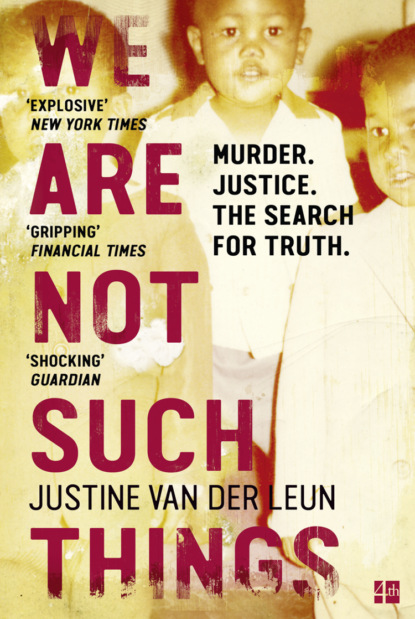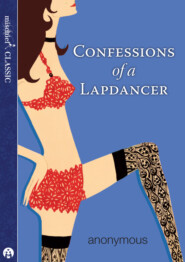По всем вопросам обращайтесь на: info@litportal.ru
(©) 2003-2025.
✖
We Are Not Such Things: A Murder in a South African Township and the Search for Truth and Reconciliation
Настройки чтения
Размер шрифта
Высота строк
Поля
“I thought that there was one thing that could possibly make me better,” Ntobeko confessed to Nancy. “I wanted to tell Mr. Biehl that I did not take the death of his daughter lightly. That this thing has weighed heavily on me. And I wanted him to know that he is a hero father to me. If I could just get Peter Biehl to listen to me and to forgive me to my face—why that would be as good as bread.”
Nancy called Peter, who was staying at a Cape Town hotel at the time, and arranged for such a meeting.
“He probably thought I was a real buttinski,” she recalled.
Peter, Nancy, and Nancy’s guide proceeded to drive to Gugulethu for what began, Nancy told me, as a “tense meeting, on a miserable, rainy day.” She stood to the side, taking copious notes and snapping photos, as a sullen, skinny Ntobeko and a sullen, skinny Easy ushered Peter into a shack they had claimed as their “clubhouse,” a drafty hovel with a couple of small chairs and a love seat. The three spoke to each other, gruffly at first, but soon they softened. Easy served Peter tea. Easy and Ntobeko explained to Peter that they were starting a youth group; the bunch had already climbed Table Mountain together and they’d designed T-shirts. They nicknamed Nancy “the bridge” for her role in connecting the two worlds. They asked to meet Linda, who was in America, where her youngest daughter, Molly, had just given birth to a baby boy. Soon thereafter, Linda arrived in Cape Town and accompanied Peter to Gugulethu. Ntobeko and Easy were waiting for her. Easy showed her a photograph of his six brothers. Linda in turn showed him a photograph of her new grandson.
“Makhulu,” Easy said.
“What does that mean?”
“Grandmother.”
From then on, Easy and Ntobeko addressed Linda and Peter as Makhulu and Tatomkhulu, respectively: Grandmother and Grandfather in the Xhosa language, honorifics used to express reverence. Linda and Peter spent a lazy Sunday evening as guests of honor at the official launch of Easy and Ntobeko’s youth club; mostly it involved sitting outside and watching kids dance and give speeches. Next, the Biehls invited the men to dinner.
“Easy’s mother said we would be given such things,” Ntobeko whispered when a waiter presented them menus a few days later. Until then, the young men’s dining out experience had been limited to a few trips to a takeaway joint.
Easy shoveled in steak and a milkshake, leaving his vegetables pushed to the side of his plate, while Ntobeko, who had a more adventurous culinary spirit, picked at a towering pile of nachos and then watched in wonder as the remainder was gathered into a package called a “doggie bag.” The four ambled over the wide, sanded docks by the ocean and into the mall. During apartheid, the men had had limited access to white-designated areas, the sorts of places that boasted ritzy shops and restaurants. When apartheid fell, they were in prison. Since they’d left prison, they hadn’t had a penny to their names. The Biehls bought four tickets to an IMAX film about water, and then the group wandered around the adjacent BMW dealership, admiring the shiny cars until showtime. After that, the Biehls bought four tickets to Austin Powers: The Spy Who Shagged Me. Linda fell asleep during the movie. It was too late for the men to catch a taxi, so the Biehls drove into the township at night and deposited the men at their homes.
The next morning, Easy called Linda at her hotel to inform her that, in a rare turn of events, a small tornado had swept through the township in the early morning hours, flattening shacks. He was checking to see that the Biehls had gotten back safely. He also wished to tell the Biehls that his family was furious at him, since Ntobeko had returned home with leftover nachos to share, while Easy had returned empty-handed. The legend of the doggie bag had then been disseminated through the families and has endured. Years later, while dining with Easy and Ntobeko and their relatives, Linda once excused herself to go to the restroom; when she returned, her meal, which she had not finished, was boxed up and sitting in front of one of the guests.
The Biehls developed a warm relationship with Easy and Ntobeko, which they maintained felt entirely natural. They took them to dozens of restaurants, taught them how to tip, introduced them to wine. Soon, they employed the two men to work at the foundation they had established in Amy’s name.
The Amy Biehl Foundation, initially funded largely by the American government, was supposed to work to prevent violence, create jobs, develop the area, provide food, and offer recreation opportunities within Cape Town’s townships. But these days, the foundation focused on after-school classes for local kids. The staff taught dance and reading and music, and handed out jam sandwiches.
Over time, Ntobeko rose in the ranks at the foundation. Without a high school degree, he began as a security guard on a bakery truck, but by 2013, Ntobeko was an office manager who lorded over the employees (most of them black), despairing at their lack of ambition, reading The Seven Habits of Highly Effective People, and idolizing Henry Ford. His old socialist days were long gone, and he was a capitalist now. He even had a couple of sidelines: school transport, wholesale chicken distribution, soft-serve ice cream, and a little wash-and-fold laundromat run from his garage. Easy, meanwhile, had risen from security guard to sports coordinator, and then had been dubbed unreliable and demoted to driver, a position he had accepted with resignation and relief.
The two men had grown up together. Ntobeko was a friend of Easy’s younger brother and had spent many nights at the Nofemela house. They had grown closer in prison and, bonded by the experience, spent a great deal of time together upon their release. But these days, with Ntobeko acting as Easy’s boss, the two only saw each other at work.
“We’re just colleagues, not friends,” Easy said. “If a person choose his own direction, I don’t blame him.”
The men visited the Biehls in America, and were invited to speak at conferences across the country. They were disappointed that they did not meet many of “the Black Americans,” whom Easy expected—as per a lifetime of watching TV shows and movies, particularly Big Momma’s House, starring the “great actor and great guy” Martin Lawrence—to say things like, “Yeah, mah maaannn, wussup, mah maaannn!” and “Mudderfucker!” Easy and Ntobeko preferred the New Jersey suburbs to the towering New York buildings, and once looked upon a swath of untamed Massachusetts land and noted that they could build an African village there. They were pleased to stay near a Manhattan police station, which they referred to as “NYPD Blue” and had their snapshots taken with mustachioed cops. Easy discovered that his favorite cuisine was the American buffet, which allowed a person to eat as much meat as desired for no additional fee. The men were impressed by hotels, and in particular, hotel bathrooms, which were the polar opposite of Gugulethu outhouses. During one trip, they took a series of photographs of each other dressed in color-coordinated b-boy outfits, lounging on the marble sink and striking a pose by the glass-encased shower. Easy kept these pictures, along with several stand-alone portraits of toilets and bathtubs, in a photo album.
After Peter died of aggressive colon cancer at age fifty-nine in 2002, Ntobeko and Easy helped arrange a Gugulethu memorial service in his honor. The two marched Linda around the township, one man on each arm, trailed by a crowd of mourners. As they had done before Peter’s death, the men continued to accompany Linda to paid engagements in Europe and the United States, where their relationship was held up as an example of the power of forgiveness, reconciliation, and redemption.
At least—with the exception of some blogs run by disapproving white-power enthusiasts who, upon relating Amy’s story, gleefully claimed, “liberalism can get you killed!”—that was how the story had always gone, repeated ad infinitum in over a thousand national and international newspaper and magazine articles, in award-winning documentaries, on talk shows, on radio shows, on TV shows. And why wouldn’t it? Its stars played their parts, and confirmed the arc and breadth of the distinct narrative: black South Africans, loving by nature but distorted into rampage by apartheid, who had been reformed and redeemed through the grace of an inspirational if puzzling pair of good-looking white Americans.
Now it was the twentieth anniversary of Amy’s death. Press interest had waned years ago. Before, the top journalists at major international papers had covered the ongoing story, but now the only foreign press was a reporter from Linda’s hometown paper, The Orange County Register, jotting down notes. During this trip, Linda had one radio interview, which was in turn picked up by a single website. The press had largely forgotten about Amy and the Truth and Reconciliation Commission, and were busy looking into the more immediate potty protests, during which angry township residents who wanted to relieve themselves in flush toilets instead of the communal sludge buckets they currently employed, had taken to throwing human feces at the mayor’s vehicle and dumping the contents of their latrines near Parliament. CAPE TOWN POO WARS, the BBC headline shouted.
Regardless, the people in St. Columba’s church that day were focusing on Amy’s too-brief life. The foundation loyalists, women who had known and worked for Linda for fifteen years, snuck into the church late, one with her hair tied into knots so tight that her scalp was pulled and red, one intently applying lip gloss with a wand. Ntobeko’s wife, wearing a pale gray skirt and top with her hair in ringlets, and their two older daughters in freshly pressed dresses, sat to the back. Ntobeko himself was not there. A haze of incense settled near the ceiling; I could feel the perfume spreading through my lungs.
“Jesus was a teacher, Jesus was a rector, Jesus was everything!” a lady preacher in colorful patterned Xhosa garb began.
“Yes!” said the congregants. They were mostly women, ranging in age from thirty to ninety, in African-print dresses, cardigans, shawls, blazers. A minority of men and children were scattered few and far between.
“Whom do I trust?” the preacher asked rhetorically. “Jesus!”
“Mmmm hmmm,” the ladies said.
The preacher launched into Xhosa, then reverted to English. She introduced Linda as “Amy Biehl’s mother.”
“Hiiii,” the ladies said in unison. In these parts, for the older generation, the name Amy Biehl required no explanation.
The preacher said she’d organized a speaker on the occasion of American guests but the speaker had disappointed her by bailing, so she herself would be speaking today. Don’t we all know about disappointment? Everyone nodded vigorously.
“Amy was a hero,” the preacher said uncertainly. She was winging it. “That was the plan of God. That she must die the way she did.” The preacher turned to Linda. “Thank you for having heart to show peace and love.”
“Amen,” the ladies said solemnly. Linda bowed her head slightly.
A male preacher, dressed in a heavy robe, took over.
“You are here for a reason, Amy was here for a reason,” he said to Linda. “We wish you a good day and we will always remember you in our prayers.”
“Amen,” said the ladies.
I looked around for Easy, then recalled that he was allergic to churches, and so probably would not make an appearance after all. Then again, he sometimes, without great enthusiasm, talked about how Jesus died for his sins, which usually signaled that his evangelical uncle had succeeded in dragging him to a service. So perhaps Easy was, more accurately, allergic not to churches but to the annual memorials to Amy that were held in churches. A year earlier, to the day, at a Catholic church nearby, I had also looked up from the service to find Easy missing. I’d slipped out of the pew and found him pacing nervously on the lawn. He took me into a back room and showed me a bare wall, where local kids used to watch projector movies; he was a sentimentalist, and he remembered, with characteristic nostalgia, not having the five-cent admission fee and sneaking in through a bathroom window.
Now, as the women sang hymns, I went outside to look for Easy, but he was gone, and he had taken the van. I stood in the sunlight, trying to get warm. August is chilly in Cape Town, winter in the Southern Hemisphere. A gray-haired white lady was cutting hearts out of fabric on a bench nearby, assisted by a pretty black teenage girl who called her Grandma. They offered me a heart and a safety pin decorated with colorful beads.
“They symbolize love over violence,” the girl explained as I stuck the pin to my sweater.
Some months earlier, the country had been in an uproar about Anene Booysen, a plain-looking brown-skinned seventeen-year-old from a poor Western Cape town who was gang-raped and disemboweled on an abandoned construction site. An even more newsworthy victim, and one who would captivate the nation’s attention for years to come, was Reeva Steenkamp, the radiant blond thirty-year-old model and reality TV star shot to death through a bathroom door by her boyfriend, the Olympian and double-amputee Oscar Pistorius. These fabric hearts, the lady said, honored Anene and Reeva and Amy, too, and all the thousands of women injured, murdered, and violated by men each year.
I wandered down NY1 to Amy’s memorial statue, by the Caltex gas station and garage where she was killed. From across the street, I could see the dry grass, the old cars piled up for repair, the low stone wall that had long ago replaced the white fence that Amy had leaned on during the attack. The memorial statue was a slick gray marble cross erected in 2010 by the Fulbright Foundation, unveiled to vague fanfare by the U.S. ambassador at the time. On the base of the memorial, carved into stone in elegant capitals, were the words:
AMY BIEHL
26 APRIL 1967 - 25 AUGUST 1993
KILLED IN AN ACT OF POLITICAL VIOLENCE.
AMY WAS A FULBRIGHT SCHOLAR AND TIRELESS HUMAN RIGHTS ACTIVIST.
A disheveled old man usually spent his days leaning against the cross, sleeping rough with his three dogs, but the man had been temporarily relocated to a nearby field. I spotted Ntobeko standing on the pavement above, by the gas pumps. His childhood nickname was Blacks, for he was so dark-skinned that from afar his features were hard to make out. Up close, he was a rotund, somber-looking man in his late thirties, with a narrow face and a weak chin. His head was shaved and rubbed with lotion. His small, glistening eyes were intelligent and suspicious, his nose long and Roman. He was neither tall nor short, and he wore his black Amy Biehl Foundation logo polo shirt stretched tight over his expansive belly.
Ntobeko used to be the scrawniest kid, a pencil neck sticking out of an oversized T-shirt, often borrowed. Now he owned a home, the chicken wholesale business, and two minivans that he used to transport upwardly mobile township children to schools in the city or the suburbs. He was married to his childhood sweetheart and had three daughters. He was a manager, which in Gugulethu held a grand allure—no longer was he merely bossed around, no, finally he got to do the bossing. Ntobeko ate meat nearly every day. His old friends to whom he no longer spoke remembered that he had been a naughty kid who ran around the streets and lived in a tiny house full of extended family. He would miss his household curfew and supper, and find himself locked out for the night. “He was a wild boy who slept in the trees,” one such friend once told me. Ntobeko saw me from across the road and, as always, averted his gaze.
Ntobeko was helping two other foundation staffers arrange a group of children before two marimbas. Marimbas are wooden xylophone-like instruments that originated in Africa and were introduced by sixteenth-century slaves to Latin America, where they were redesigned and spread around the world. A few kids were expertly hitting the bars with mallets, the chimes whipped up into the wind. A chorus swayed behind them, biding their time, singing halfheartedly. I turned back and went to wait outside the church.
Soon, the doors opened and Linda followed the stream of churchgoers. She wore a black pleated skirt, just above the knee, a black top, black pumps, a coral blazer, and a silk coral scarf. Her hair was, as always, perfect: short, angular, gleaming white-blond, and stick-straight.
A ragtag group of people gathered around her, comprised of a couple of academics Amy had known when she studied in Cape Town; the ambulance driver who had tried unsuccessfully to treat Amy as she died; the fabric-heart-making lady and girl; the reporter for Linda’s hometown paper and the photographer who accompanied her; some Los Angeles–based college graduates making a short film starring black South Africans whose hope against all odds would stun and inspire any audience; several people involved in some form of media; and Nancy Scheper-Hughes, the anthropologist who had introduced Easy and Ntobeko to the Biehls.
Nancy was an elfin sixty-something woman with a pert nose and short gray hair; she radiated a nervous intellectual energy. She was a woman molded by the 1960s free love movement, who tended toward all views radically left-wing and, “being an old Wobbly socialist,” actually celebrated Labor Day. Nancy had been working at the University of Cape Town when Amy was killed, though she’d left the country soon after. Back then, Nancy had joined a band of furious women of all different races and marched the streets of Gugulethu in protest, waving placards demanding that the brutality cease. Now Nancy and her husband had flown out from California, carrying the old cardboard signs from that 1993 peace march, which Nancy had saved for all these years and handed out to anyone who wanted one. Nancy was the director of the Program of Medical Anthropology at UC Berkeley, and had published three books significant in her field, but she appeared not to mind bad spelling: a couple of the handwritten signs read STOP THE SENCELESS VIOLENCE and AMY BIEHL, OUR COMERADE.
The small group walked down the street toward the marimba music. Linda wore her sunglasses; she would have made a great first lady, at once regal and Midwestern, warm but removed, with the looks of an aging, corn-fed beauty queen. Everyone followed. Locals, sitting on low walls and smoking on milk crates, watched with little interest. A young man in long shorts stood outside the TyreMan Tyre Shop and clapped without knowing why.
Ntobeko, who saw the group coming, walked slowly away, expertly disappearing into the township. His daughter, the little girl in purple, grabbed Linda’s hand tightly. She wasn’t even in kindergarten, but she knew the drill. The full-color image promptly appeared in TheOrange County Register, accompanying a story on love and reconciliation in South Africa:











